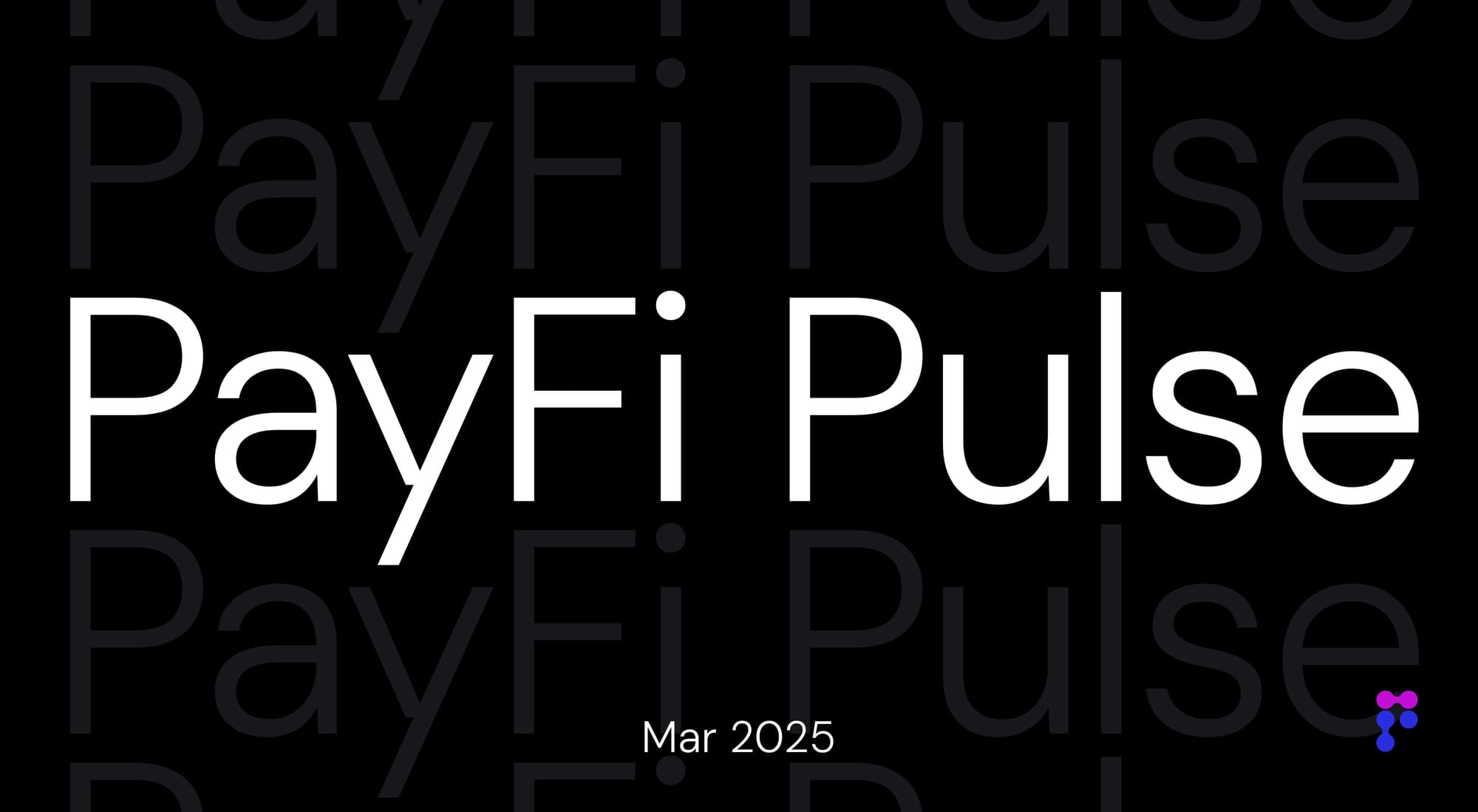PolyFlow Insights: Rethinking Financial Systems Through Blockchain
The article is sourced from the Forbes Finance Council. Original article link: https://www.forbes.com/councils/forbesfinancecouncil/2025/03/28/drawbacks-of-traditional-financial-systems-and-how-blockchain-tech-can-help/ Raymond Qu | Cofounder PolyFlow, aiming to transform the global payment landscape & create efficient, innovative pay solutions | Geoswift. The traditional financial system has long been the backbone of global commerce, enabling economic growth. However, despite its many strengt

The article is sourced from the Forbes Finance Council. Original article link: https://www.forbes.com/councils/forbesfinancecouncil/2025/03/28/drawbacks-of-traditional-financial-systems-and-how-blockchain-tech-can-help/
Raymond Qu | Cofounder PolyFlow, aiming to transform the global payment landscape & create efficient, innovative pay solutions | Geoswift.
The traditional financial system has long been the backbone of global commerce, enabling economic growth. However, despite its many strengths, the system is fraught with barriers. Emerging technologies like blockchain, and more specifically solutions such as payment finance (PayFi), present a viable alternative to address these drawbacks.
Flaws Of Traditional Financial Systems
Traditional payment systems are expensive due to intermediary banks as well as credit card networks. According to the World Bank, the global average cost of sending remittances is as high as 6.62%. Additionally, credit card processing fees typically range between 1.5% and 3.5% per transaction, creating much unwanted friction. Meanwhile, current banking infrastructure relies on batch processing and outdated reconciliation methods. International wire transfers, for instance, can take up to five business days to settle. The Bank for International Settlements (BIS) reports that delays in clearing and settlement processes cost the global economy billions of dollars annually due to liquidity inefficiencies.
At the same time, an estimated 1.4 billion adults globally remain unbanked according to the World Bank. Many individuals and small businesses, particularly in emerging markets, lack access to essential financial services due to stringent requirements, high fees and geographic limitations. Traditional banks often overlook low-income populations, per the World Bank, which in turn drives global wealth disparity.
Simultaneously, fraud and cybercrime are persistent threats in traditional finance. The Nilson Report estimates that global payment card fraud losses reached $32.34 billion in 2021 and are projected to exceed $38.5 billion by 2027. Traditional financial institutions also operate within opaque frameworks, limiting users’ ability to verify transactions or track fund movements. Mismanagement and corruption in banking have led to financial crises, such as the 2008 global financial meltdown, which wiped out nearly $30 trillion in stock market value worldwide.
How Blockchain Technology Can Provide Solutions
Blockchain technology offers an innovative solution to many of these systemic problems by providing immutability in financial transactions. PayFi, as a blockchain-based payment infrastructure, exemplifies how decentralized finance (DeFi) can address these long-standing issues.
First, blockchain and distributed ledger technology eliminates intermediaries, thereby reducing transaction fees. For instance, bitcoin and ethereum transactions cost far less than traditional bank wires, and can be further reduced via PayFi infrastructure. Layer 2 solutions and blockchain-based remittance services offer near-zero-cost transactions, benefiting individuals and businesses by increasing savings and improving access to financial services.
With blockchain, transactions settle in seconds to minutes instead of days. Unlike traditional systems that require clearinghouses, blockchain operates on a decentralized ledger that instantly verifies and records transactions. PayFi and other blockchain-based payment protocols facilitate real-time settlements and reduce liquidity risks.
Blockchain also removes geographic and bureaucratic barriers to banking. With just a smartphone and an internet connection, any user can participate in a decentralized financial system, gaining access to payments, savings, lending, investments, DeFi and more. Blockchain-based platforms provide financial services to underserved populations without requiring traditional bank accounts.
The technology’s cryptographic nature ensures that transactions are immutable and tamper-proof. Unlike centralized banks that are frequent targets of cyberattacks, decentralized finance platforms store records across multiple nodes, making them highly resistant to hacking. The use of smart contracts in blockchain-based payment systems further reduces fraud by automating transactions.
Public blockchains offer a level of transparency unparalleled by traditional financial institutions. Every transaction is recorded on an immutable ledger, enabling anyone to verify fund flows. This feature is particularly valuable in preventing financial fraud, money laundering and corporate mismanagement.
Potential Concerns Of Adopting Blockchain Tech In Finance
When adopting blockchain technology and PayFi in finance, institutions need to consider several challenges. Blockchain implementation can be technically complex and expensive, necessitating specialized expertise and substantial initial investment. Scalability issues might impede handling large transaction volumes and regulatory uncertainty presents compliance difficulties. Security risks, including smart contract vulnerabilities, require careful oversight. Furthermore, integrating blockchain with existing systems can be challenging, and the technology hasn’t yet achieved widespread adoption. Embracing blockchain also demands a cultural shift toward decentralization and transparency, which may conflict with traditional practices. Institutions must carefully weigh these factors and plan strategically to mitigate potential risks.
Conclusion
The shortcomings of the traditional financial system — high costs, inefficiencies, financial exclusion, security risks and lack of transparency — underscore the urgent need for a more efficient alternative. Blockchain technology, exemplified by payment solutions like PayFi, offers a transformative approach to financial transactions. As the world moves toward a more digital economy, blockchain-based financial systems will play a crucial role in reshaping the future of global finance.
Forbes Finance Council is an invitation-only organization for executives in successful accounting, financial planning and wealth management firms.
Raymond Qu | Cofounder PolyFlow, aiming to transform the global payment landscape & create efficient, innovative pay solutions | Geoswift. Read Raymond Qu’s full executive profile here.
About PolyFlow
PolyFlow is an innovative PayFi protocol designed to connect real-world assets (RWA) with decentralized finance (DeFi). As the infrastructure layer of the PayFi network, PolyFlow integrates traditional payments, crypto payments, and DeFi in a decentralized manner to handle real-world payment scenarios. PolyFlow provides the necessary infrastructure to ensure compliance, security, and seamless integration of real-world assets, paving the way for a new financial paradigm and industry standards.

Interview with PolyFlow CFO: When Payments Build Onchain Credit — PayFi Reconstructs Financing
In the traditional financial system, “payment” is often regarded as the end state of value transfer. But in the world of PayFi, it marks the beginning of value creation. When Visa can process tens of thousands of transactions per second but still requires several days for cross-border settlement, and when small and medium-sized enterprises shoulder a 6.5% cost on international payments while still having to pre-fund transactions, a financial revolution is quietly fermenting through on-chain paym

PolyFlow Insights: Rethinking Financial Systems Through Blockchain
The article is sourced from the Forbes Finance Council. Original article link: https://www.forbes.com/councils/forbesfinancecouncil/2025/03/28/drawbacks-of-traditional-financial-systems-and-how-blockchain-tech-can-help/ Raymond Qu | Cofounder PolyFlow, aiming to transform the global payment landscape & create efficient, innovative pay solutions | Geoswift. The traditional financial system has long been the backbone of global commerce, enabling economic growth. However, despite its many strengt

The PayFi Report 2025 (Mar)
In March, PayFi continues to be a hot topic in the market. We are rapidly advancing towards this next-generation financial paradigm that integrates crypto payments with DeFi. Building this promising vision won't happen overnight, it requires the collaborative efforts of multiple parties and timely catalysts.In this March PayFi report, we will explore the market situation and identify the catalysts that will propel us towards the PayFi financial paradigm. Data Tells First, let's examine the st